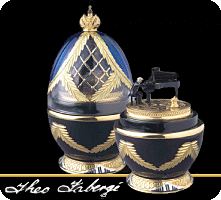“Pianist set to let her fingers do the talking”
Glendale News Press
January 22, 2008
By Angela Hokanson
In many elite youth piano competitions, contestants must be ready to endure multiple elimination rounds.
But the New York Piano Competition, which begins today at the Manhattan School of Music, gives this traditional model a twist. Contestants still play multiple rounds of challenging pieces, they are still judged and still awarded prizes based on merit. But they get to take part in the entire competition from start to finish without fear of being sent home.
For Connie Kim-Sheng, a 16-year-old from La Crescenta who is one of 22 teenage pianists from across the country taking part in the competition, this kind of contest holds some appeal.
“What’s different about this one is you don’t get eliminated,” Connie said.
Spending so much time practicing and then being summarily eliminated without even getting to play some of your pieces can be frustrating, she said.
“It’s really a bummer to prepare for all those rounds, and you get kicked out and can’t really play,î said Connie’s mother, Juli Kim, who is also a pianist and started teaching her daughter piano when Connie was 3.
When Connie was 12, she started taking lessons with renowned concert pianist John Perry, a professor of music at USC.
“She’s a passionate player,” Kim said. “Her playing embodies soul.”
The New York Piano Competition, which begins today and runs for five days, is a program of the Stecher and Horowitz Foundation. The foundation’s directors, Melvin Stecher and Norman Horowitz, toured the United States as a classical piano duo from the 1950s to the 1990s.
The competition is designed as a way to give young pianists an opportunity to play for an audience and become a known quantity in the world of classical piano, Horowitz said.
“It gets their names known,” he said. “These kids have to create an image for themselves, and they do it through competitions.î
Competitions also help students build their musical repertoire, he said.
The reason the competition doesn’t eliminate contestants is that it often takes students one or two rounds to calm down and show what they can do, Horowitz said.
“We feel that some of the best rounds we’ve heard are some of the second and third rounds,” he said.
The New York Piano Competition is one of the few youth competitions that work this way, he said.
The foundation sends out more than 1,000 notices about the competition to private teachers and conservatories, Horowitz said. About 150 students between 14 and 22 apply by sending in recordings of themselves playing the piano. The recordings are reviewed by a panel of judges, which this year selected 22 finalists to come to New York City for the competition.
The contest consists of solo rounds, concerto rounds and ensemble rounds.
Connie will play Pytor Tchaikovsky’s concerto No. 1 and pieces like Frederic Chopin’s Winter Wind etude for the solo rounds.
For the ensemble round, she will be randomly paired with another contestant to play several pieces in a “one-piano-four-hands” format, Horowitz said.
By the end of the week, the contestants will be awarded cash prizes ranging from $1,500 to $5,000. But even the students who don’t win a prize still receive $1,250 for reaching the competition as a finalist, Horowitz said.
“Everybody goes home a winner,” he said.
While Connie is looking forward to playing in New York City, the competition is also a chance to reconnect with people she knows through piano.
“I’m actually really looking forward to seeing my friends,” she said.


